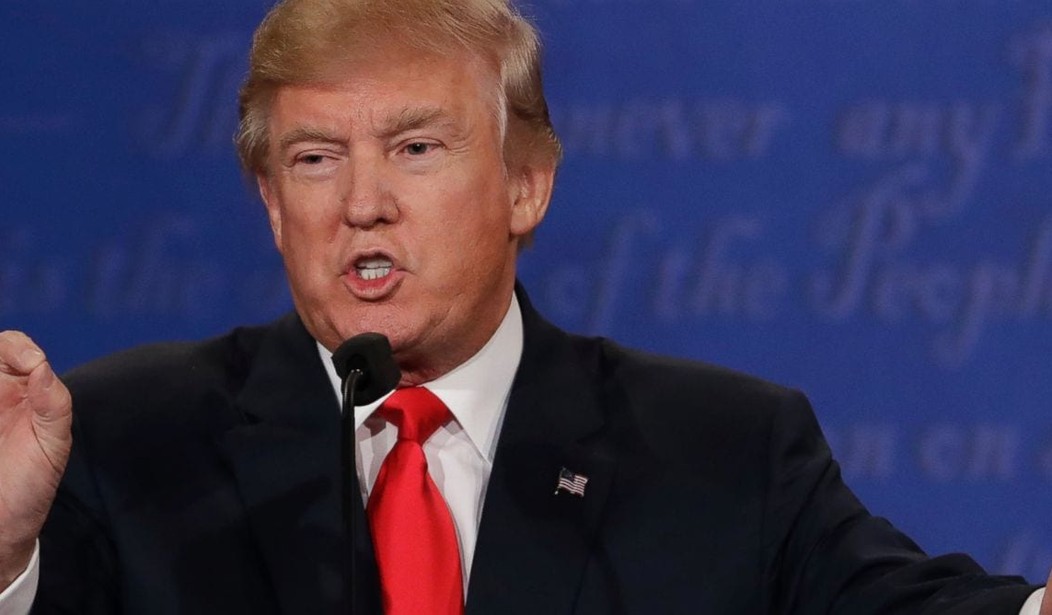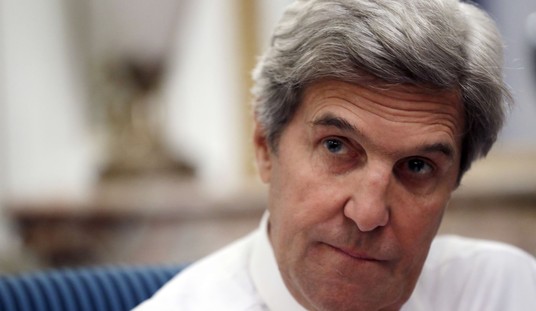Donald Trump was, dare I say, magnificent in the third presidential debate. I am not a member of #NeverTrump, but suffice it to say that I have been extremely skeptical about Trump as a candidate, and Trump as president. I have repeatedly given Trump the opportunity to convince me that he’s not only a good conservative, but a good, viable candidate—and that he won’t be a megalomaniac once in office. I’ve repeatedly been left wanting. During the final debate, however, he was disciplined, he was focused, and he was uncharacteristically prepared. Hell, he even sounded like a conservative warrior—something he’d completely failed to accomplish in any previous effort. Hillary Clinton, on the other hand, was clearly rattled. She came off like a prize fighter who had taken too many body blows. She was sucking wind for most of the match, and by the time she did counterpunch, she lacked energy and power.
So, what difference will it make at this stage of the race for the White House? I believe this will move the needle in important ways, but not enough to help The Donald.
Historically, third debate performances have rarely made much of a difference. There is election fatigue by the time these things roll around. Even the candidates are exhausted and ready for this thing to be done, with three weeks remaining until Election Day. Rarely has this fatigue been so pronounced as it is in 2016. This is owing, in no small part, to how deeply and abidingly unlikable both candidates are. Prior to this final debate, social media feeds across the land were filled with people commenting on how they had no desire to watch the same [expletive deleted] show that they witnessed in the first two debates. Interruptions, outbursts, lies, lies about lies, no command of important issues, wrong solutions that no voter requested—the first two debates just reinforced how many voters already despised both candidates.
Given that history, and this year’s historically negative feelings about the state of affairs, how much could Donald Trump move the needle in his favor? As of the afternoon of the debate, FiveThirtyEight had calculated that Hillary Clinton had about an 88% chance of winning the race. Yes, Ronald Reagan was able to use a dominating performance against Jimmy Carter in their only debate, a week before Election Day, to help in his effort in 1980. Let’s be honest, though—that was an outlier. No other final debate performance in memory comes close to matching 1980. Add to that history the fact that Reagan didn’t face the same problems Trump does in 2016. Reagan never had any problem uniting his base, never had any unendorsements in October, never faced such outright skepticism about his fitness for office.
So give it up to Trump. He struck me, for the first time, as focused enough to actually be presidential.
And yet, I repeat. There are less than three weeks until Election Day. Early voting has begun in many states. Overseas and military ballots were mailed out a long time ago. Trump faces a major deficit in the polls, and it would strain credulity to think that anything short of a major Clinton crisis would reverse these headwinds.
Here’s where that performance matters. As of the afternoon of that final debate, FiveThirtyEight also had it at a 76% chance that the Democrats would retake the Senate. Trump’s abysmal few weeks prior to the final debate were having a clear negative impact on down-ballot races. This was due in large part to the controversy about his remarks about what he could do to women because of his celebrity, and how each candidate was forced to respond.
Every Republican candidate across the nation now faces the same Democrat message: HE/SHE IS JUST LIKE TRUMP! It doesn’t matter if it’s true. It doesn’t matter if their policies are diametrically opposed to Trump’s. Late messaging, aimed at low-information, undecided voters, is an emotional appeal.
How does your average school board candidate, incumbent state senator in a swing district, gubernatorial candidate in a blue state—hell, how does any Republican respond to that?
(Insert rant about how Republicans really are the stupid party, but not in the way establishment squishes usually mean it by saying we have to get elected to govern, but rather how our candidates steadfastly refuse to advance conservative arguments for votes in ways voters actually respond to and in ways that slay false premises of the professional community organizing Left.)
With all that as a backdrop, what does Trump’s final performance mean? For him, it’s a swan song. It’s his final attempt, successful as it was belated, to win over his skeptical base that never quite got over his donations to the Clinton Foundation, or his defense of Planned Parenthood, or his piggish bragging about his horrid treatment of women.
For the Republican Party in general, it FINALLY stops the bleeding. Their presidential candidate finally got around to looking presidential.
And for where the rubber meets the road—maintaining the House and Senate as a firewall against President Clinton—it gives Republicans an actual reason for hope. Too many Republicans still face odds that are too stacked against them, but at least there’s a chance to maintain the Senate—a chance that seemed impossible before that last performance by Trump.










Join the conversation as a VIP Member